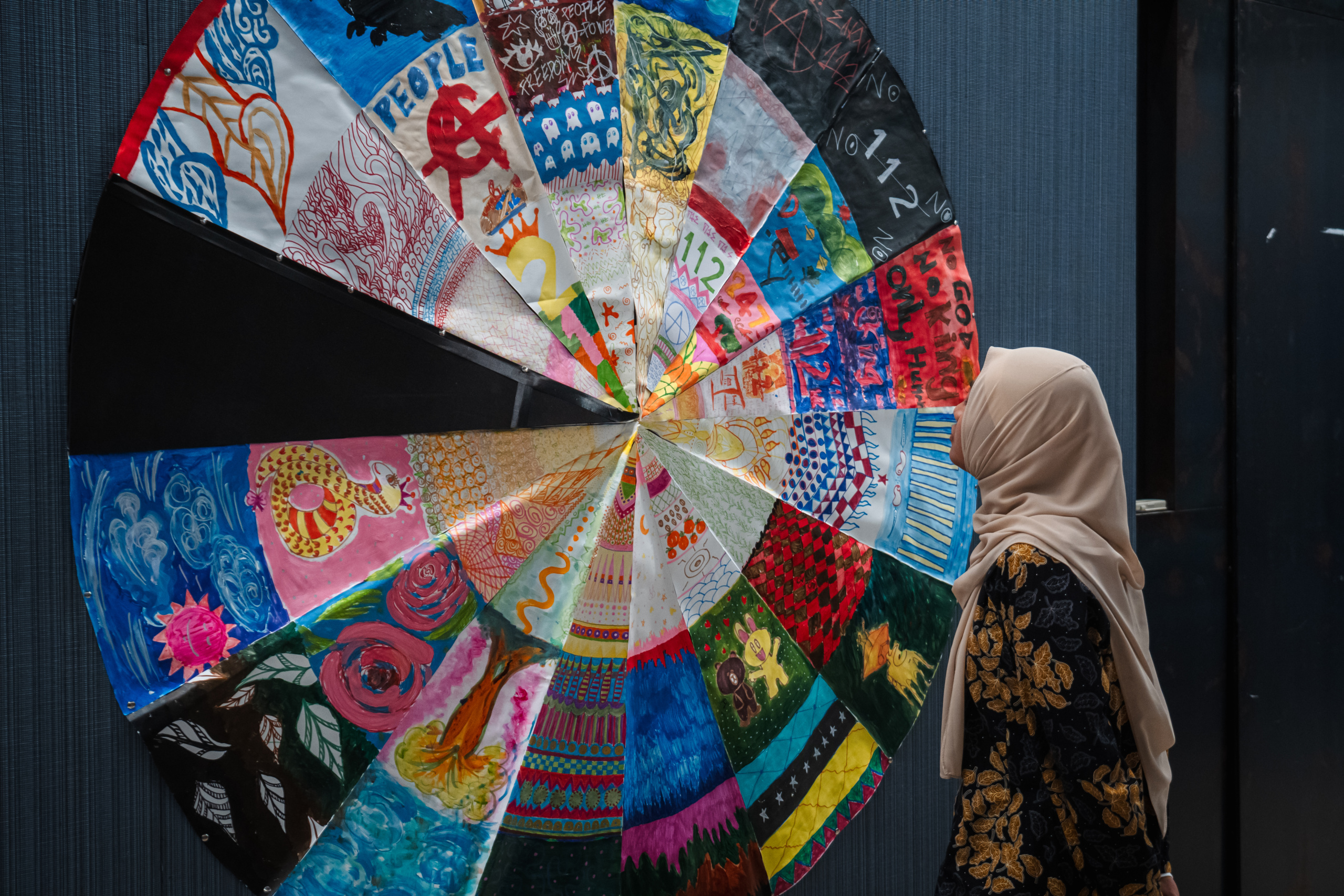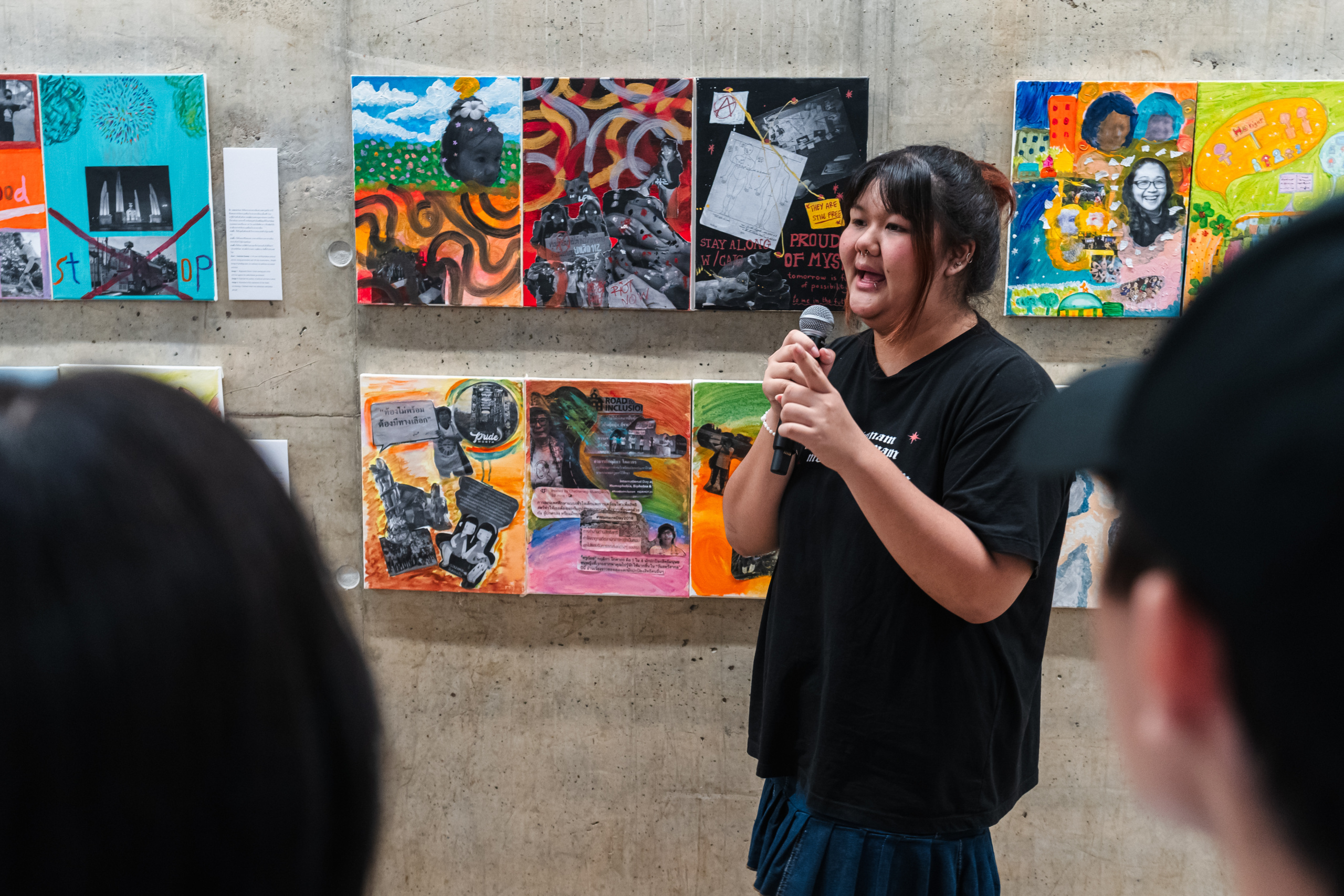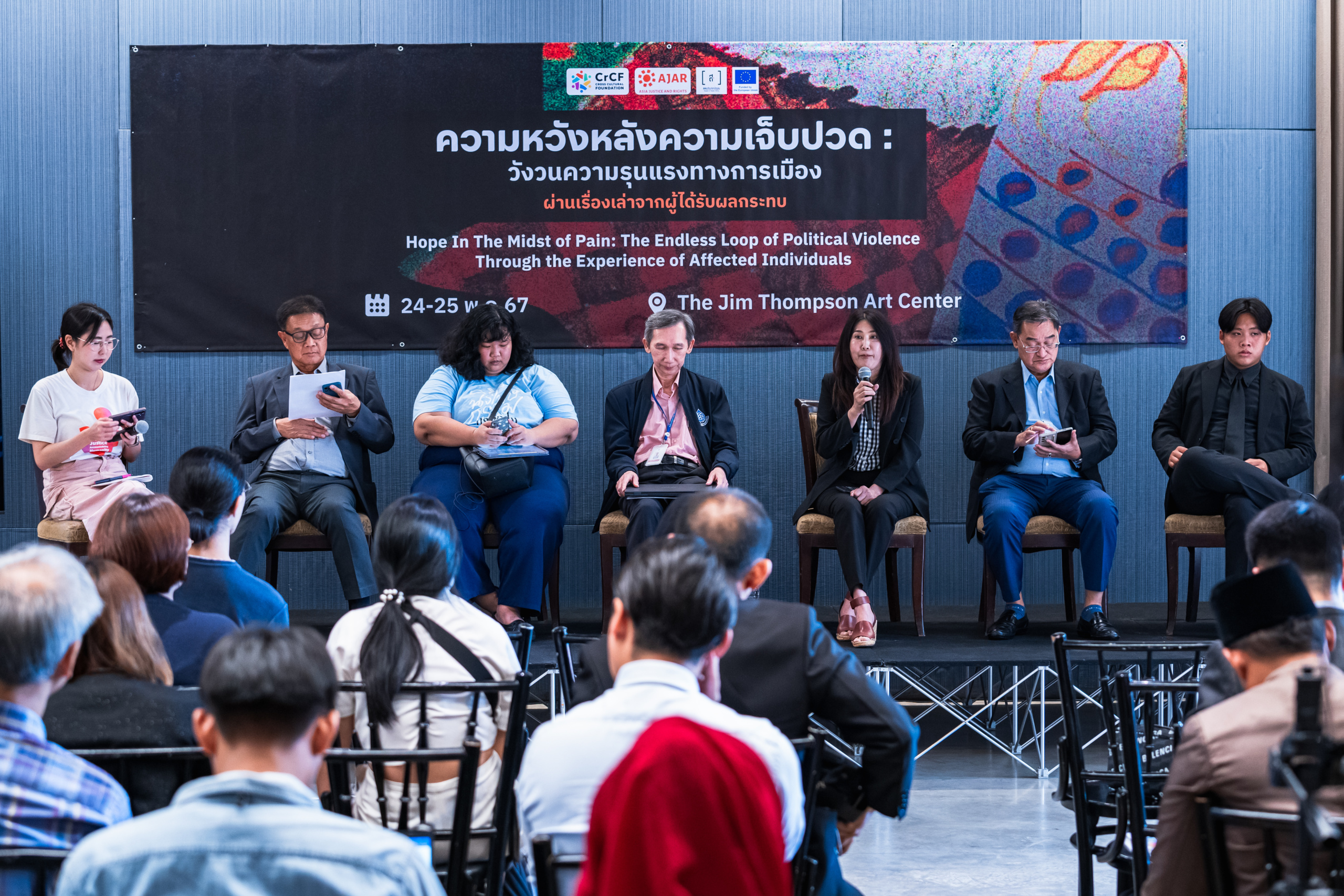In the past few decades, people in Thailand have experienced multiple coup attempts, excessive clampdowns against protesters, arbitrary arrests and torture, forced disappearances, and extra-judicial killings. The seminar discussed how society can overcome various conflicts, while addressing past human rights violations and recognizing survivors. Participants included government agencies, civil society, and affected individuals.
At the event, the AJAR Regional Program Manager Indria Fernida also presented the “Transitional Justice Handbook”, and the lessons learned worldwide on peacebuilding and efforts towards transitional justice.
The national seminar also launched two research reports: The joint report by AJAR and the Duay Jai Group, titled, “ We Just Want to Live in Peace: Strengthening Peace and Accountability for Conflict and Atrocities in Thailand”, and “Transition to Justice: Policy Recommendation by Affected Individuals of Political Violence.”


In collaboration with the Museum of Popular History, the event also featured an exhibition titled the “Diary of the People: Past, Present, and Our Dreams”. The artworks by political activists from the earlier “Let Art Heal” workshop showed healthy and relaxing ways to cope with stress, even without artistic talent.
In his keynote speech for the seminar, Dr Prajak Kongkeerati of Thammasat University said the mission of transitional justice is “shared by the entire society, including the state,” not just judges and lawyers.
One activist said, the police beating that he experienced was not the most painful experience; it was “seeing my friend get arrested”. Noppassin Treelayapewat added, “Recently I had to go to the funeral of my friend who died in prison.”

The seminar also increased awareness about elitist Thai history, similar to some other nations. A speaker said the textbooks “present only one side of the story of the elite.” Accounts about people’s struggles are rarely found in books on Thai national history, said Anon Chawalawan from the Museum of Contemporary History, “unlike the historical accounts of the royal families and nobles in each era.”
Among the cases discussed was the “Takbai case” of southern Thailand, which statute of limitation was to expire on 25 October 2024, 20 years after 78 protesters died of suffocation in cramped trucks. Following the protests involving some 1,500 people in Takbai, Narathiwat province, high-ranking security officers allegedly ordered the transport of protesters to barracks about 150 kilometres away. Victims “still have a hope that the wrongdoers will be punished,” said Araesoh Ayohsae, a lawyer for the case. However, in late September, the eight suspects reportedly vanished before ever appearing in court.
The lawsuit is the first filed by relatives of victims of state security operations against high-ranking officials allegedly responsible for excessive violence. As the Bangkok Post editorial of 1 October 2024 stated, “The Tak Bai lawsuit has become a symbol of the struggle against the state’s culture of impunity”.